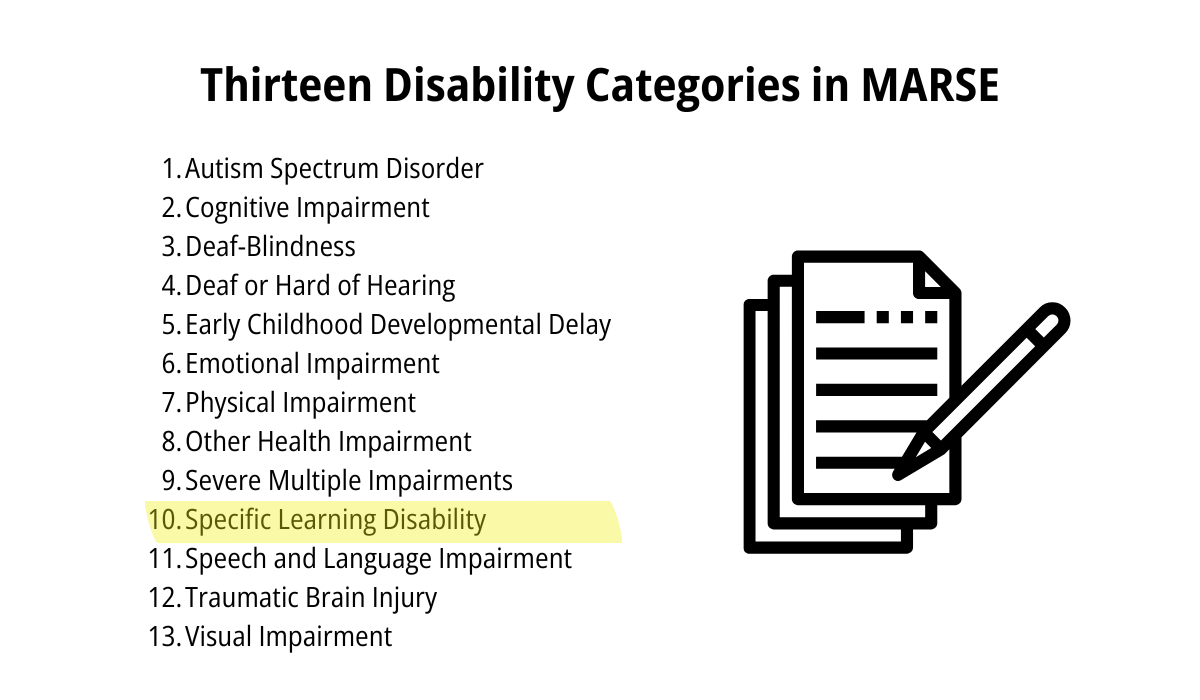Eligibility for Special Education under designation of Specific Learning Disability
The Michigan Administrative Rules for Special Education (MARSE) define eligibility for special education services within thirteen categories of disability.
- MARSE R 340.1713 Specific Learning Disability
Note– In 2010, MDE published “Michigan Criteria for Determining the Existence of a Specific Learning Disability”. This document issued the following requirement of local school districts: On or before September 1, 2010, each local educational agency (LEA) and public school academy (PSA) must publicly post on their web site, or make public through other means, the process or combination of processes which will be used by the LEA or PSA to determine the existence of a SLD. (§ 300.307(b) and § 300.600(d)(2)).


